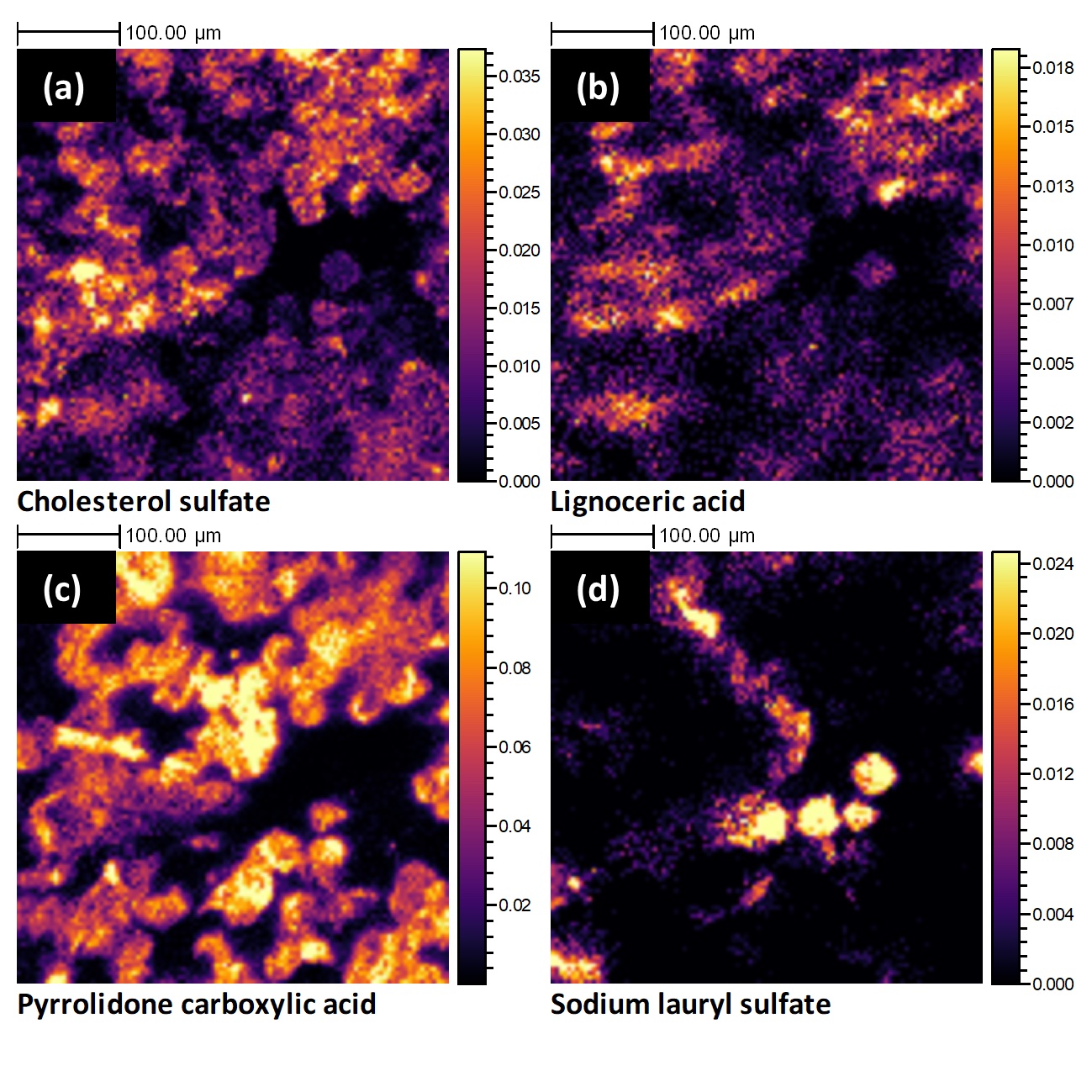Friday, 18 March 2022
Scientists have accurately analysed the tough barrier layer of the skin giving the most detailed molecular map of its structure that will help in the development of new skin products and treatments.
Researchers from the University of Nottingham used the latest three-dimensional mass spectrometry imaging technique to analyse human skin tissue from the stratum corneum to reveal its molecular chemistry in unprecedented detail. These new findings provide increased fundamental understanding in skin biology and enable the development of new skin products and treatments. These research findings have been published today in PNAS.
The University of Nottingham was the first University in the world to own and operate the 3D OrbiSIMS instrument used in this research. The technology facilitates an unprecedented level of molecular analysis for a range of materials including biological tissues, such as human skin. Importantly, its high mass resolving power, chemical specificity and high sensitivity allow it to be used to analyse in situ human skin samples to accurately map the molecular structure of the skin.
 Images of different chemistries found in the stratum corneum
Images of different chemistries found in the stratum corneum
Researchers used ex vivo full-thickness human skin tissue samples and a single gas cluster ion beam to both sputter through the skin and generate secondary ions, which were analysed using the OrbitrapTM to generate a depth profile. This process showed the range of chemistries and 3D distributions within the stratum corneum and indicate how these relate to fundamental biological processes such as the cholesterol sulphate cycle.
This research gives the chemical structure detail of the stratum corneum never seen before. The information we were able to gather on the complex chemistry of this tough barrier layer has the potential to benefit research into fundamental biological processes, such as those associated with ageing and disease in addition to improving the efficacy of topical delivery.
This research is part of a collaboration with No7 Beauty Company and the analysis done as part of this study has also shown the penetration profile of the stratum corneum. The team were able to accurately track the penetration of No7’s peptide blend Super Matrixyl 3000 Plus™ (a trademark of Sederma) following topical application to the skin surface and detected the peptides responsible for targeting invisible photo-damage that occurs early in the ageing process.
Commercially this research is very significant as this technique can offer an improved understanding of topical delivery and therefore lead to the development of more effective peptide based anti-ageing products.
Story credits
More information is available from Dr David Scurr on David.Scurr@nottingham.ac.uk
Notes to editors:
About the University of Nottingham
Ranked 97 in the world and 17th in the UK by the QS World University Rankings, the University of Nottingham is a founding member of Russell Group of research-intensive universities. Studying at the University of Nottingham is a life-changing experience, and we pride ourselves on unlocking the potential of our students. We have a pioneering spirit, expressed in the vision of our founder Sir Jesse Boot, which has seen us lead the way in establishing campuses in China and Malaysia - part of a globally connected network of education, research and industrial engagement.
Nottingham was crowned Sports University of the Year by The Times and Sunday Times Good University Guide 2024 – the third time it has been given the honour since 2018 – and by the Daily Mail University Guide 2024.
The university is among the best universities in the UK for the strength of our research, positioned seventh for research power in the UK according to REF 2021. The birthplace of discoveries such as MRI and ibuprofen, our innovations transform lives and tackle global problems such as sustainable food supplies, ending modern slavery, developing greener transport, and reducing reliance on fossil fuels.
The university is a major employer and industry partner - locally and globally - and our graduates are the third most targeted by the UK's top employers, according to The Graduate Market in 2024 report by High Fliers Research.
We lead the Universities for Nottingham initiative, in partnership with Nottingham Trent University, a pioneering collaboration between the city’s two world-class institutions to improve levels of prosperity, opportunity, sustainability, health and wellbeing for residents in the city and region we are proud to call home.
More news…